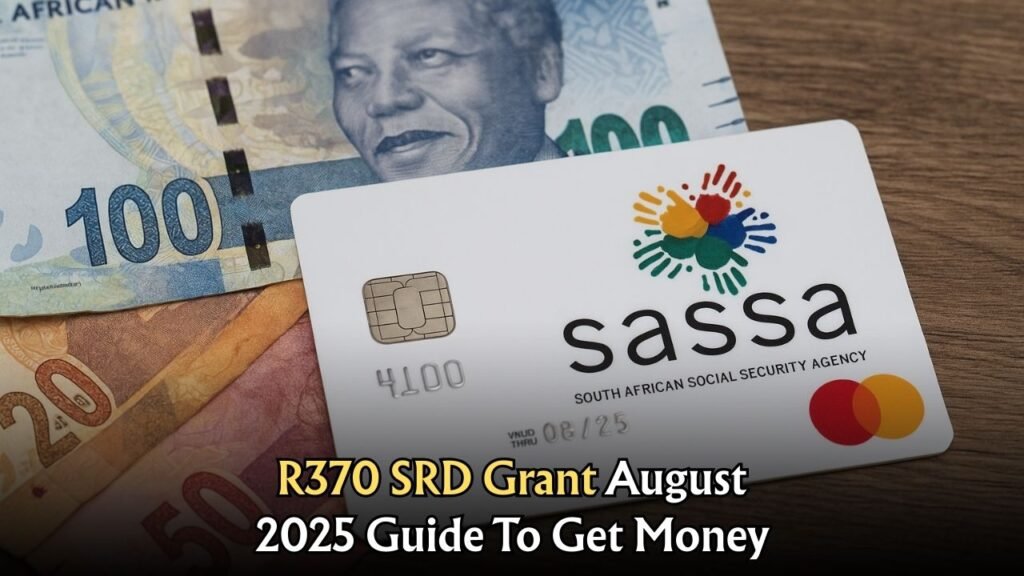R370 SRD Grant in August 2025: As South Africa continues to tackle economic challenges, the Social Relief of Distress (SRD) grant remains a crucial lifeline for many citizens. In August 2025, the R370 SRD grant will once again provide vital assistance to those in need. Understanding how to secure this grant is essential for eligible individuals seeking financial relief. This article serves as your comprehensive guide to navigating the application process, understanding eligibility criteria, and staying informed about the South African Social Security Agency (SASSA) updates. Whether you are applying for the first time or reapplying, knowing the ins and outs of the SRD grant process is key to ensuring timely financial support.

Understanding Eligibility for the R370 SRD Grant
The R370 SRD grant is designed to support South Africans who are facing severe economic hardship and have no other means of income. To qualify, applicants must meet specific criteria set by SASSA. Primarily, applicants should be unemployed, not receiving any other form of social grant, and must be South African citizens or permanent residents. Additionally, individuals must be between the ages of 18 and 59, as this grant is not available to those who qualify for pension benefits or child grants. SASSA also considers the financial situation of applicants, ensuring that only those truly in need receive assistance. It’s crucial for applicants to provide accurate and up-to-date information when applying, as any discrepancies can lead to delays or rejection of the application. Staying updated with SASSA’s announcements and adjustments to eligibility criteria, especially in response to changing economic conditions, is essential for potential beneficiaries.
The Application Process for SASSA’s R370 SRD Grant
Applying for the R370 SRD grant through SASSA involves a straightforward process, but attention to detail is critical to avoid errors. The application can be completed online via the SASSA website or through registered service points across the country. Applicants must provide their South African ID number, contact information, and banking details to facilitate the direct deposit of funds. For those without a bank account, SASSA offers alternative payment methods such as using mobile money transfers. It’s important to apply as early as possible, as SASSA processes applications on a first-come, first-served basis, and any incomplete or incorrect information can delay the process. Once submitted, applicants can check the status of their application online, ensuring they remain informed about any required actions or updates from SASSA. Regularly checking the SASSA platform for updates and announcements can also help applicants stay ahead and ensure they receive their grant without unnecessary delays.
Key Updates for the R370 SRD Grant in 2025
In 2025, several updates have been introduced by SASSA to improve the efficiency and accessibility of the R370 SRD grant. One significant change is the enhanced digital application process, which aims to streamline submissions and reduce processing times. SASSA has also expanded its outreach to remote areas, ensuring that individuals without internet access can still apply through local service points. Additionally, there is an increased emphasis on security to protect applicants’ personal and financial information from fraud. It’s important for applicants to be aware of these updates and utilize the available resources to ensure a smooth application experience. Moreover, SASSA has been actively engaging with community organizations to provide support and guidance to applicants, ensuring that everyone has access to the necessary information and assistance throughout the grant application process.
Common Mistakes to Avoid When Applying for the SRD Grant
While applying for the R370 SRD grant, several common mistakes can lead to application rejections or delays. One frequent error is providing incorrect or incomplete personal information, such as ID numbers or contact details, which can hinder SASSA’s ability to process the application. Applicants should also ensure that they accurately report their financial status and employment situation, as discrepancies can result in disqualification. It’s crucial to double-check all information before submission and to remain honest and transparent about one’s circumstances. Another common mistake is missing deadlines or failing to follow up on application status, which can result in missed opportunities for financial assistance. By staying informed and vigilant, applicants can avoid these pitfalls and improve their chances of successfully securing the R370 SRD grant. Keeping abreast of any changes in the application process or eligibility criteria is also vital to ensure compliance with SASSA’s requirements.



